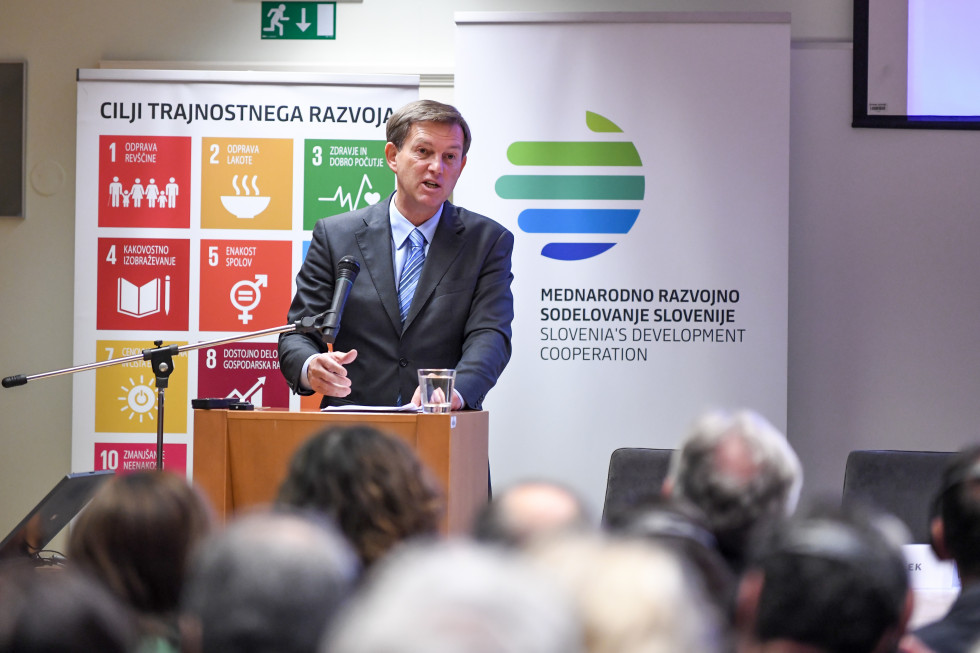10th Slovenian Development Days: Climate Change and Ensuing Challenges
- Ministry of Foreign Affairs
Minister Cerar recalled that environmental diplomacy and effective multilateralism are strategic priorities for Slovenian foreign policy, as they are instrumental for managing global challenges.
“Since Slovenia is a green country, rich in natural resources and biodiversity, we are all the more conscious of the importance of the fight against climate change. Extreme weather events are a wake-up call for us all, warning us of the need to ensure sustainable development and preserve the quality of life, for us and for our children, too” added the Minister, underlining that all Slovenia's development cooperation projects focus on environmental protection and efforts against climate change.
The Minister outlined Slovenia's international engagements in this field, including the revival of the Green group of six smaller countries that promote green policies, the sustainable management of water as a natural resource and the declaration of World Bee Day. During the presidency of the Council of the European Union, Slovenia will place special attention on circular economy, he announced.
This edition of development days is co-organised by the Ministry of the Environment and Spatial Planning. In his introductory address, Minister Simon Zajc talked about the transboundary nature of climate change, which is why international action is required. He also underscored that it would not be fair for developing countries to pay a higher price for climate change compared to developed countries, especially since they have contributed far less greenhouse gas emissions than developed countries.
Concerning greenhouse gas emissions and the ensuing clear and known consequences, Albin Keuc, Director of the SLOGA NGO platform for development, global education and humanitarian aid, called for a clear political decision to ensure effective action.
The main events of the 10th Slovenian Development Days, organised by the Ministry of Foreign Affairs and the Ministry of the Environment and Spatial Planning, were two panel discussions entitled ‘There is no Planet B – Youth and environment policy’ and ‘Take, (re)use and (don’t) dispose: Development cooperation and the potentials of a circular economy’. During the first panel discussion, experts explored the role of the young in climate change action, and during the second, panellists discussed the potential of a circular economy for achieving climate goals with an emphasis on regional cooperation in South-East Europe.
Throughout the week, other events will follow: expert lectures, the screening of the Virunga documentary at Kino Bežigrad (26 November), a public debate on transboundary water resources and their management (27 November, Scientific Research Centre of SAZU) and a workshop for designing guidelines for mainstreaming environmental protection in development cooperation (29 November, Slovenian Environment Agency). All the events will be accompanied by exhibition panels with World’s Best News featuring positive development cooperation stories related to climate change.
Slovenian Development Days is being held for the second time in 2019. On 8 March, the first edition focused on gender equality, the empowerment of women and their strengthened rights at the national and global levels. Gender equality and environmental protection, which comprises climate change, are crosscutting topics in Slovenian development cooperation and crucial for the eradication of poverty, inequality and ensuring sustainable development.


